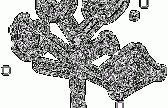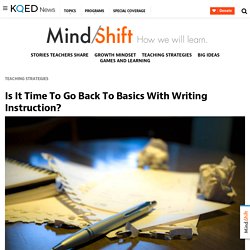

Time Traveler by Merriam-Webster: Words from 1998. Reading Challenge Ideas - Google Sheets. Models of Excellence. Student Interactives. Creative Writing Community for Kids.
Is It Time To Go Back To Basics With Writing Instruction? Most educators acknowledge that literacy is important, but often the focus is on reading because for a long time that is what achievement tests measured.

In the last few years there has been more focus on writing in classrooms and on tests, but many students still have difficulty expressing their ideas on paper. Often students struggle to begin writing, so some teachers have shifted assignments to allow students to write about something they care about, or to provide an authentic audience for written work. While these strategies are important parts of making learning relevant to students, they may not be enough on their own to improve the quality of writing. Kids & Family Reading Report. Edutopia. University Park Campus School (UPCS) uses low-stakes writing every day and in every subject to foster student voice, self-confidence, and critical thinking skills. Low-stakes writing is a tool to help students build comfort with sharing and developing their thoughts through writing. A defining element of low-stakes writing is how it's graded -- the grade doesn't carry a lot of weight.
This removes much of the pressure from having to do the assignment a certain way, putting value instead on student thought, expression, and learning, rather than punctuation, grammar, or getting a correct answer the first time. "The most important thing about it for me is that it's not censored, and it's not too highly structured," explains James Kobialka, a UPCS seventh-grade science teacher.